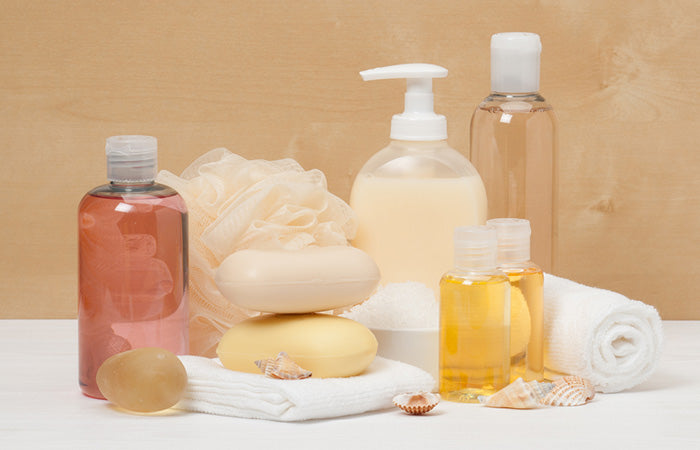
What’s The Difference Between Shower Gel and Body Wash?
Not all cleansing products are the same.
Up until 2020 we were all pretty certain that we knew how to execute the most basic functions of personal hygiene, such as washing our hands and taking a shower. But like most other things, that year brought even those simple processes into question. There was a celeb-sparked debate about how often one needs to shower, and we were all surprised to find out that 20 seconds feels a lot longer than you think (but luckily, the happy birthday song will get you through it). There were even questions about what types of cleanser we should be using to get the best cleanse for our skin.
Shower Gel vs. Body Wash: How Do They Differ?
Many people believe that shower gel and body wash are pretty much the same thing, but they’re wrong. Sure, if you ask what shower gel is used for, the answer will be the same as what body wash is used for. Both of these products are used to cleanse your body during a shower sesh, but there is one main difference that sets them apart: texture. Shower gel has a firm, gel-like consistency (hence the name). It also can sometimes be used on both the body and hair, depending on the formula.
On the flip side, body wash has a thinner formula that emulates a liquid soap and may have a creamy consistency, which works to provide your skin with more moisturizing and hydrating benefits. Now, we know that with products constantly being infused with more skin-loving ingredients, those textures can change. So, whether you decide to go with shower gel or body wash is up to what you’re looking for and the ingredients your skin craves.
What To Do After Using Shower Gel or Body Wash
Here’s a fun skin care fact: To keep your skin as hydrated as possible, apply your body moisturizer right after you step out of the shower, while your skin is still slightly damp. No, it’s not counterproductive — it will actually help seal in moisture.
Via: L'Oréal


